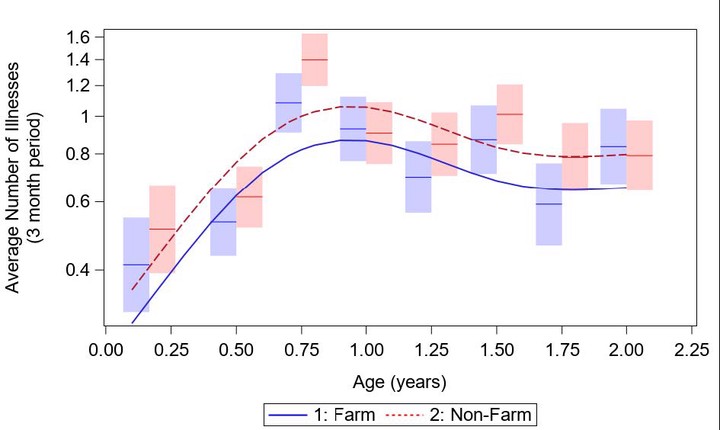
Abstract
Background: Farm exposures in early life reduce the risks for childhood allergic diseases and asthma. There is less information about how farm exposures relate to respiratory illnesses and mucosal immune development. Objective: We hypothesized that children raised in farm environments have a lower incidence of respiratory illnesses over the first two years of life than non-farm children. We also analyzed whether farm exposures or respiratory illnesses were related to patterns of nasal cell gene expression. Methods: The Wisconsin Infant Study Cohort included farm (n=156) and non-farm (n=155) families with children followed to age 2 years. Parents reported prenatal farm and other environmental exposures. Illness frequency and severity were assessed using illness diaries and periodic surveys. Nasopharyngeal cell gene expression in a subset of 64 children at age two years was compared to farm exposure and respiratory illness history. Results: Farm vs. non-farm children had nominally lower rates of respiratory illnesses (rate ratio 0.82 [0.69,0.97]) with a stepwise reduction in illness rates in children exposed to 0, 1, or ≥2 animal species, but these trends were non-significant in a multivariable model. Farm exposures and preceding respiratory illnesses were positively related to nasal cell gene signatures for mononuclear cells and innate and antimicrobial responses. Conclusions: Maternal and infant exposure to farms and farm animals was associated with nonsignificant trends for reduced respiratory illnesses. Nasal cell gene expression in a subset of children suggests that farm exposures and respiratory illnesses in early life are associated with distinct patterns of mucosal immune expression. Keywords: Farm; children; gene expression; nasal epithelial cells; respiratory illness; virus.